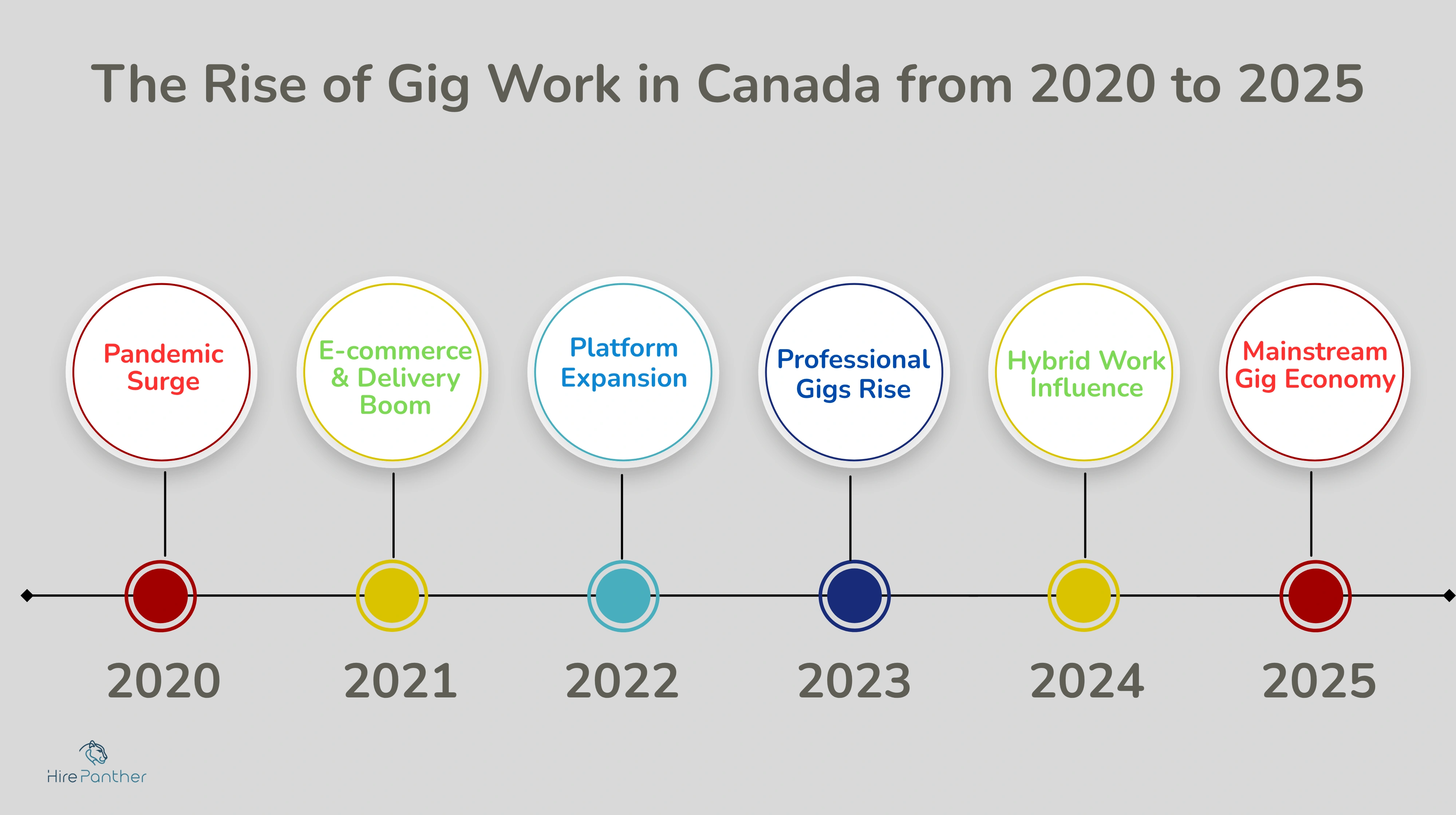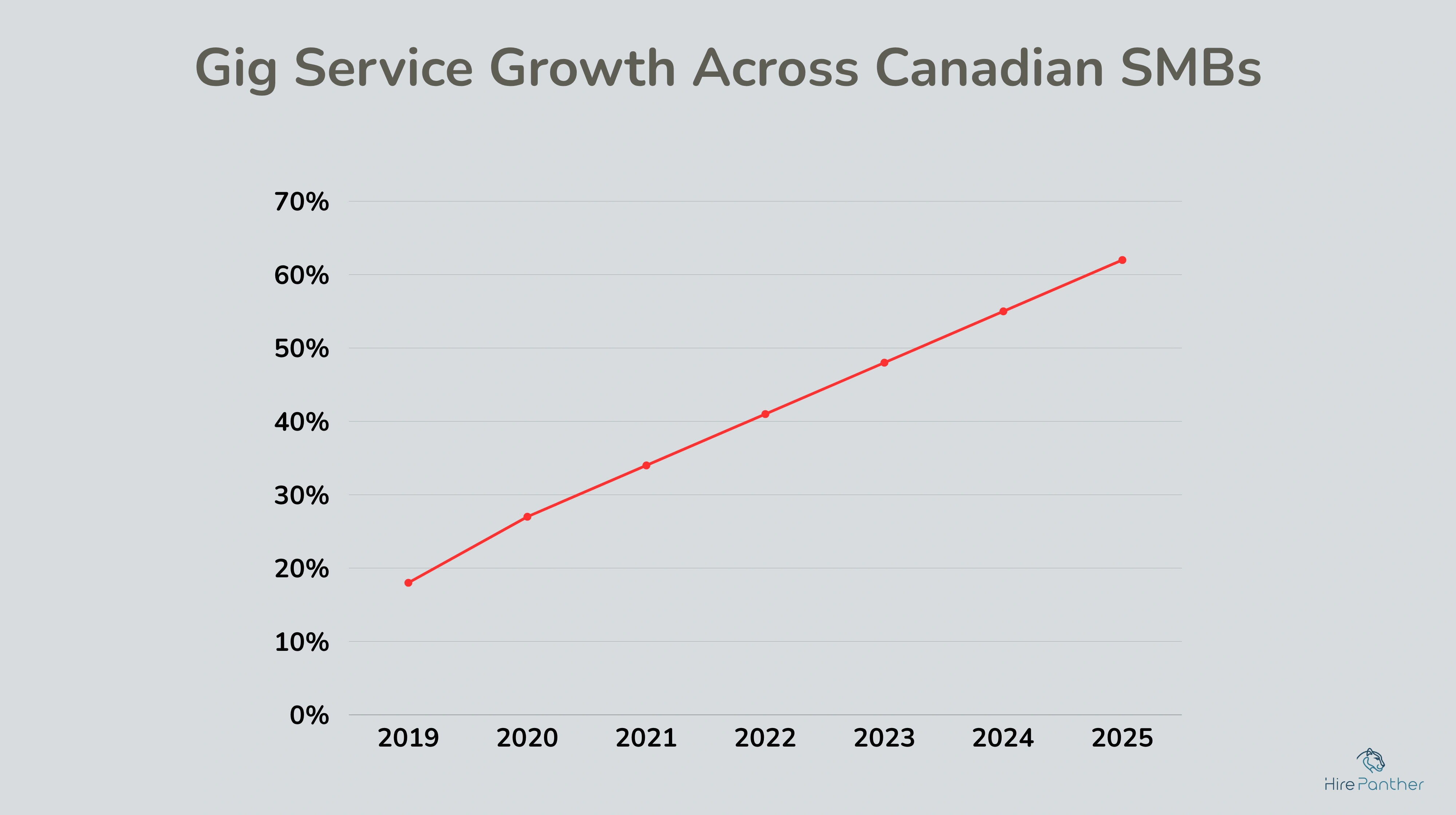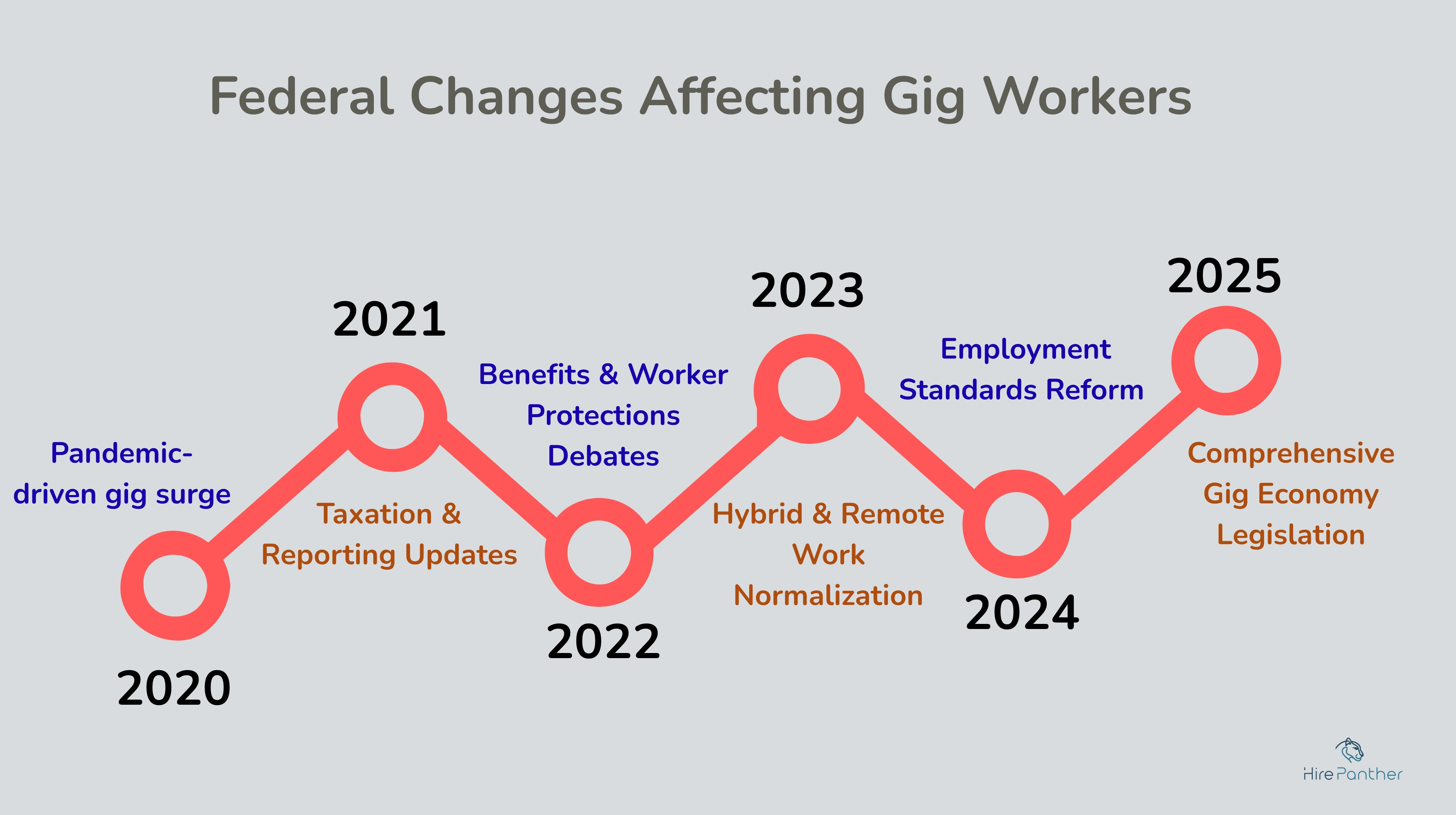The Role of Gig Work in Canadian Economic Recovery Post-Pandemic
- 10 Sep, 2025

Gig Work’s Rise in a Post-COVID World
The COVID-19 pandemic dramatically reshaped Canada’s economy and workforce. As traditional job markets contracted, the gig economy emerged as a critical safety net for thousands of Canadians.
Now, in 2025, gig work continues to play a central role in Canada’s economic recovery—supporting individuals, businesses, and local communities alike.

How Gig Work Helped Fill Employment Gaps
When many full-time jobs disappeared during lockdowns, gig work became a flexible and accessible alternative.
Key Benefits During Crisis:
- Immediate income opportunities for displaced workers
- Remote, low-contact jobs in delivery, digital services, and support roles
- Lower barriers to entry for newcomers and students
By 2022, over 30% of Canada’s freelance workforce had joined the gig economy as a direct result of pandemic-related job loss.
Gig Work Empowering Small Businesses
Small businesses turned to gig workers to:
- Manage digital marketing
- Set up eCommerce sites
- Provide temporary support without long-term hiring commitments
This helped businesses stay agile and scale back up without the overhead of permanent staffing.

Government and Platform Support
Emergency Support
Government programs like CERB gave Canadians the breathing room to explore freelance and gig work paths.
Platform Expansion
Gig platforms like Fiverr, TaskRabbit, and new Canadian entrants expanded their reach and added new services tailored for pandemic recovery (e.g., virtual event support, telehealth assistants, contactless delivery).
Gig Work Driving Innovation & Entrepreneurship
The rise of gig work fostered a new wave of solo entrepreneurs and service creators, including:
- Independent digital consultants
- Personal wellness professionals
- Remote educators and coaches
These freelancers contribute to Canada’s GDP and reduce dependency on large employers.

Economic Data Snapshot
- Freelance sector growth (2020–2025): 36% increase
- Estimated gig economy contribution to GDP (2025): $48B
- Top growing sectors: Tech, health & wellness, logistics, education
Long-Term Impact on Employment Culture
Normalizing Remote and Freelance Work
Hybrid work culture and freelance-first roles have become mainstream.
Workforce Resilience
Gig workers now form a foundational part of Canada’s adaptable, decentralized job ecosystem.
Employment Policy Reform
Policy shifts are underway to address gig worker rights, taxation, and benefits.

Conclusion: A Permanent Pillar of Canada’s Economy
Gig work helped Canada rebound from an unprecedented employment crisis and now represents a permanent feature of the national workforce. With proper support, the gig economy will continue fostering innovation, employment diversity, and economic resilience well beyond 2025.
